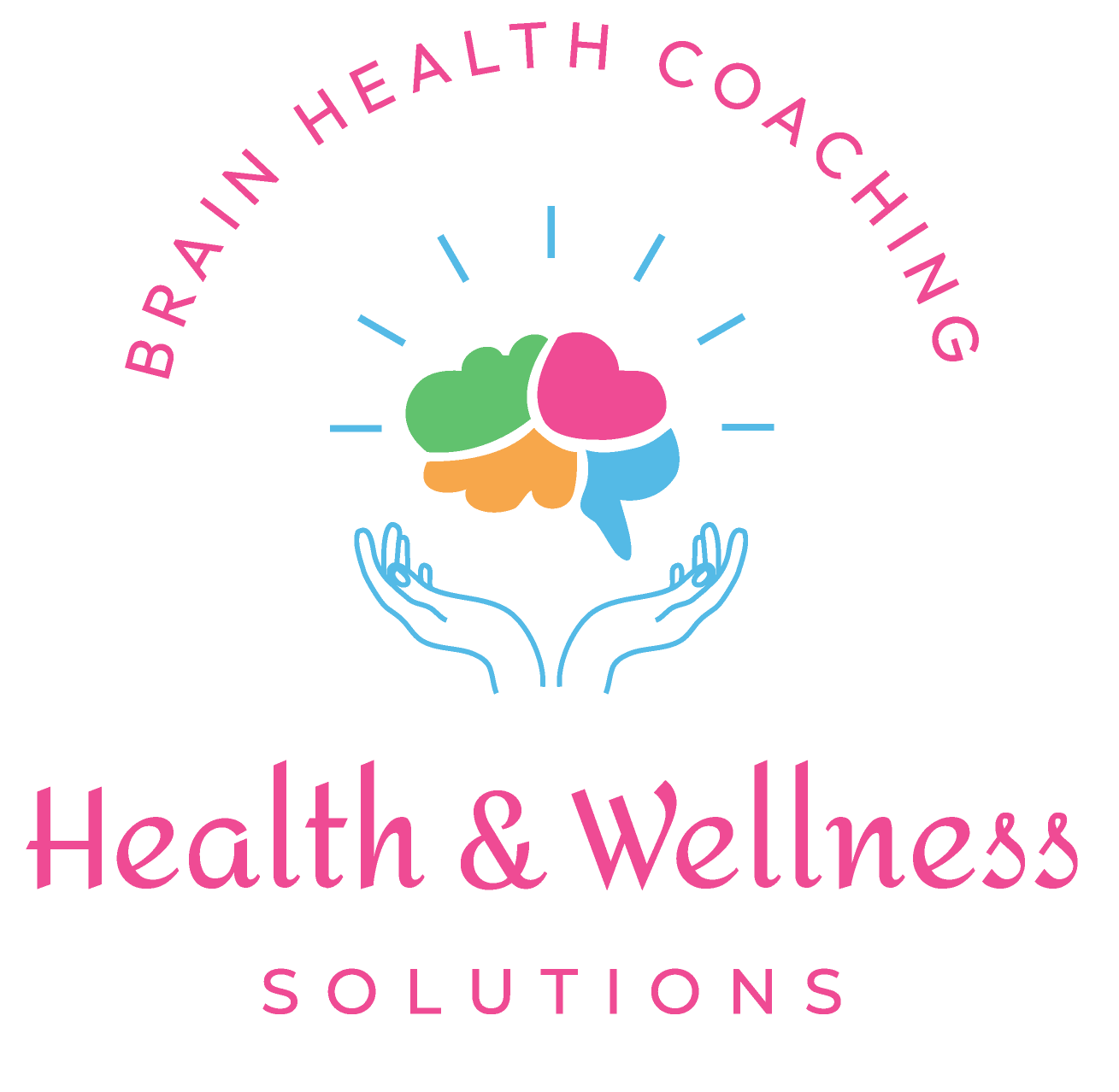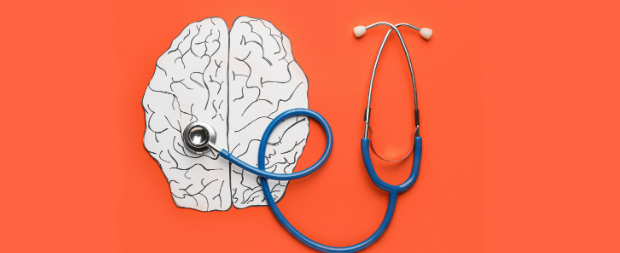When was the last time you felt like this? You’re fully focused, you’re calm and relaxed but alert and paying attention to the task at hand. You have steady energy without feeling stressed or wired. You’re able to persevere as you focus on your goal, and you experience the joy of satisfaction when the task is complete.
In today’s fast-paced world, the fear of cognitive decline and “senior moments” is a common concern. Call it fuzzy thinking, zoning out, feeling spacey, or being in a fog — the lack of focus and concentration is worrying millions of women who are desperate to stay sharp for as long as possible. We’re nervous about losing our edge at work, being inattentive at home and being distracted while driving.
Menopausal women often struggle with cognitive challenges alongside other menopausal symptoms. They often struggle with feeling foggy on top of other issues like insomnia, depressed feelings and physical symptoms because menopause, mood and mental fitness are tightly linked.
This article will delve into factors affecting focus and concentration and provide actionable strategies to enhance these essential cognitive functions.
More and more women are finding it hard — or even impossible — to concentrate when it matters most, and it’s scaring the heck out of us. We fear our “senior moments” may be more than momentary brain glitches.
Staying on task, feeling sharp and being able to focus like a laser make you feel strong, smart, and aware. They’re also key indicators of a healthy brain, and a healthy life. Several easily identified factors can blur your focus and disrupt your ability to concentrate, but you can, and should, do something about them — before another day goes by.
The Focus Breakers
It takes just one split second for your focus to drift but an eternity to get it back. That’s because your ability to focus is generally at the mercy of your ability to be distracted.
You can be focused like a laser on a project ‘til you hear a noise outside — or a random thought dances into your mind. Even an itch on your arm can derail your train of thought.
We also get distracted when we’re bored, sad, mad, or confused. Any strong emotion — frustration with a co-worker, troubles at home, even playfulness — can shatter your focus. And restoring focus is no cake walk, partially because of multitasking: we’ve trained our brains to juggle a variety of things simultaneously but to focus sharply on exactly none of them.
Distractions can undermine the best attempts to concentrate but there are other factors at play when it comes to losing focus that you can’t blame on a scattered mind. If you want to blame something for your inability to focus and concentrate, choose one of these focus breakers:
1. Noise Distractions
Nothing steals your attention like a loud, unexpected noise — a fire engine siren, a horn honking, the ringing phone. You might jump up to take care of the interruption or see what’s going on, but when you sit back down… now, what exactly were you working on anyway? If you’re trying to concentrate in a noisy space, you won’t be very productive.
2. Lack of Sleep
Getting enough quality sleep is a key element for learning, memory, and the ability to focus. You already know what it’s like to try to read or work while drowsy. Your very consciousness is altered when you’re sleepy and your brain changes too.
As you start to fall asleep, whether intentionally or inadvertently, your brain undergoes a shift in cognitive alertness, resembling the altered state observed in certain medical conditions.
3. Menopause and Hormonal Changes
Loss of focus is tightly linked to the hormonal changes women undergo in perimenopause and menopause, when estrogen levels begin to drop. Research shows that later, when women are postmenopausal, those with the highest levels of estrogen in their blood have better brain function. They remember more words and have better judgment, and they’re also less stressed by their tasks.
4. Stress and Pressure
You may think you work better under pressure, but external influences that encourage you to rush can force you off track. Rushing increases your stress level and raises your heart rate which can have a negative effect on your work, and your sense of wellbeing.
Feeling pressured and hurrying to finish something can feed negative thoughts — “I’ll never get this done!” or “I don’t have enough time to make this good!”
These “interfering cues” don’t inspire you, instead causing you to focus intently on what you can’t do. Focus-splitting negative cues also include anxiety about the quality of your work, and fearful thoughts about what might happen in the future.
Another focus buster is simply trying too hard because sadly, overachievers often lose sight of the goal they were trying to focus on.
Rushing through tasks can elevate stress levels and hinder concentration. External pressure and anxiety about work quality can lead to negative thoughts that further compromise focus.
5. Operating on Autopilot
All of us may be less focused than we realize. Studies show that we operate on autopilot about 95% of the time as we follow our deeply ingrained routines and patterns. An example of this “failed focus” is driving and arriving home without remembering specifics of the ride.
The Major Strategies for Improving Focus and Concentration
You can resharpen your focus using the same steps that support and enhance memory function. Because you need to remember what to focus on, the brain mechanisms that hold information in your working memory correspond with the ones that control your ability to focus.
Focus and memory – You can’t have one without the other! And if you have a good working memory you are more able to stay on task even when it’s a tough challenge.
Here are actionable strategies to bolster these essential cognitive functions:
1. Nutrient-Rich Diet
Nourishing your brain with essential nutrients is paramount for optimal cognitive function. Consume foods containing high-quality B vitamins, quercetin, vitamin D, and curcumin, as these can support memory and overall brain health.
2. Embrace a Mediterranean-Style Diet
Gradually switch your diet to the Mediterranean-style of eating. Add whole grains, vegetables, fruits, and fish which can provide the necessary nutrients for cognitive health.
3. Regular Exercise
Engaging in physical activity for at least 30 minutes a day, four to five times a week, not only supports physical health but also clears the mind and enhances focus.
4. Practice Mindfulness Meditation
Mindfulness meditation is a valuable tool for countering the detrimental effects of stress and tension on concentration. There are many resources that offer accessible and engaging meditation practices.
Here are additional Tips for Sustained Focus
- Minimize distractions in your workspace.
- Plan regular breaks and meals to prevent hunger-induced distractions.
- Multitask effectively but prioritize full focus during critical tasks.
- Schedule designated times for distractions, such as checking emails or social media.
- Avoid rushing through tasks, as it can lead to mistakes and increased stress.
- Challenge your brain by performing routine tasks with your eyes closed or using your non-dominant hand.
Conclusion
Be more focused — not more stressed!
When we become more focused, we improve our odds of success at whatever we want to do, and vice versa. Oddly, we usually don’t notice when we are focusing well but are painfully aware when we feel distractible.
Preserving and enhancing focus and concentration is vital for women aged 45-70 who aspire to maintain their cognitive abilities. By addressing factors like nutrition, lifestyle, and stress management, individuals can proactively nurture cognitive sharpness and lead more fulfilling lives.
These strategies empower individuals to stay on top of their cognitive game, free from distracting lapses in concentration.
READY TO GET STARTED?
I’d love to connect with you!
💻 If you want to learn more about the 5 Pillars of Brain Health, request Brain Fit Over 45″, the ultimate guide to Brain Health. You can find it on my website: Free Guide – Health and Wellness Solutions (healthwellnesssolution.com)
📆 Let’s hope on a call! A FREE 45-minute Discovery Call where we’ll discuss your needs and whether the Brain Boost Blueprint Coaching Program fits you! Calendar to Book Call
💻 Follow me on LinkedIn: Eileen Allosso, Brain Health Coach
💻 Follow me on Facebook: Eileen Allosso, Brain Health Coach
#BrainHealth #AntiAging #HealthyLiving

Eileen Allosso, a Nurse Practitioner and Clinical Neurology Specialist, offers Brain Health Coaching that transcends traditional approaches. She empowers women aged 45 to 70 to overcome brain fog, memory lapses and other cognitive issues through tailored, holistic methods. With Eileen, embark on a journey that leads you to your desired goals of feeling like your younger self again, conquering fears around growing older, and aging vibrantly!

